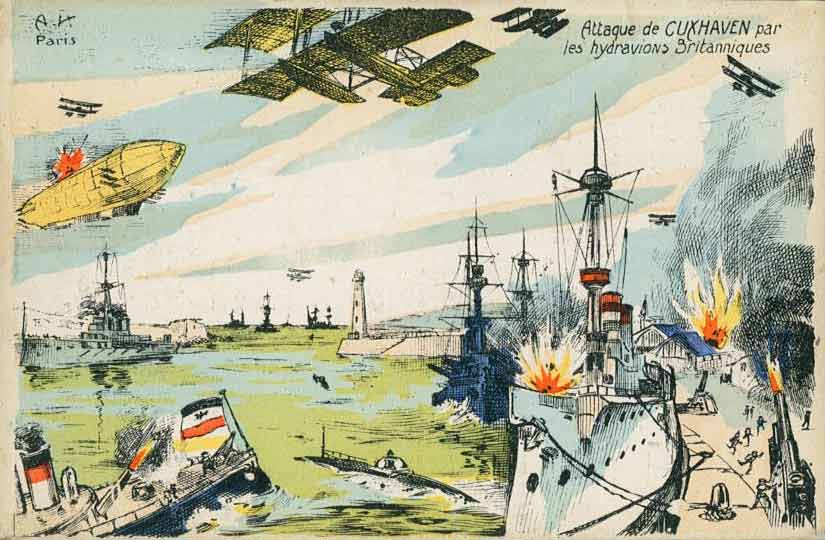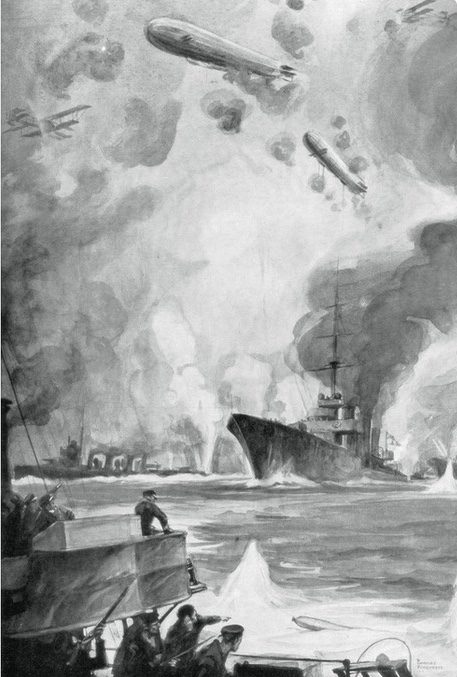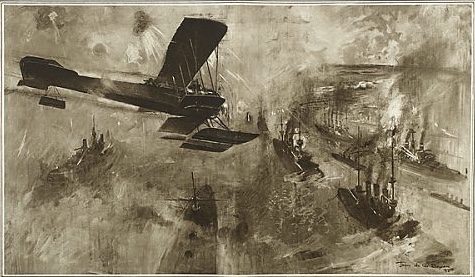The Raid On Cuxhaven, Christmas Day 1914.


The raid was a British ship-based air-raid on the Imperial German Navy at Cuxhaven mounted on Christmas Day, 1914.
Aircraft of the Royal Naval Air Service were carried to within striking distance by seaplane tenders of the Royal Navy, supported by both surface ships and submarines. The aircraft flew over the Cuxhaven area and dropped their bombs, causing damage to shore installations.
It was described at the time as an “air reconnaissance of the Heligoland Bight, including Cuxhaven, Heligoland and Wilhelmshaven … by naval seaplanes” during which “the opportunity was taken of attacking with bombs points of military importance” in northern Imperial Germany.
The story of the raid was thus told in the Admiralty announcement:

“On Friday, the 25th, German warships lying in Schillig Roads off Cuxhaven were attacked by 7 Naval seaplanes. The attack was delivered in daylight starting from a point in the vicinity of Heligoland. The seaplanes were escorted by a light cruiser and destroyer force, together with submarines. As soon as these ships were seen by the Germans at Heligoland, two Zeppelins, three or four hostile seaplanes and several submarines attacked them.
It was necessary for the British ships to stay in the neighbourhood in order to pick up the returning airmen, and a naval combat ensued between the most modern cruisers on one hand and the enemy’s aircraft and submarines on the other.

By swift manoeuvring, the enemy submarines were avoided and the two Zeppelins were easily put to flight by the guns of HMS Arethusa. (Flagship of Commodore R Y Tyrwhitt), HMS Undaunted and HMS Aurora. The enemy’s seaplanes succeeded in dropping their bombs near to our ships though without hitting any.
The British ships remained for 3 hours off the enemy’s coast without being molested by any surface vessel and safely embarked 3 out of the 7 airmen with their machines. Three other pilots which returned later were picked up by British submarines which were standing by, their machines being sunk.
The British airmen’s bombs were discharged on points of military significance doing great damage to the German base”.

